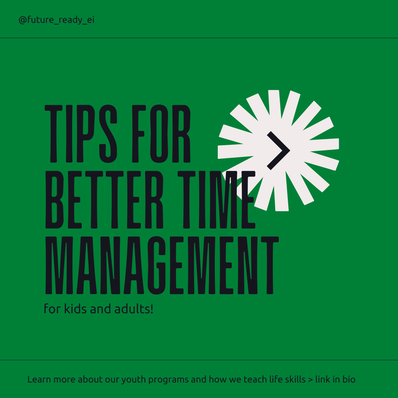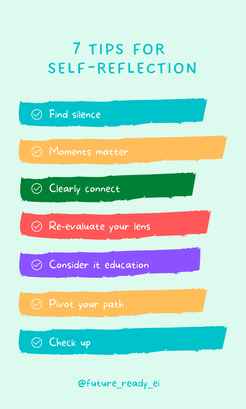|
Here we are just at the cusp of May, bracing for the tumble roll into a race for time before summer takes full control. Often it feels easier for us to hold our breath and plow through the busyness, but when we don’t exhale we tend to shatter. By building a steady stream of stamina, while breathing of course, we allow ourselves the gift of space and time. Accomplishing it all at once is never possible in the end, so we need to feed the endurance meter so that fatigue is not the victor over our busy lives. Let’s look through some helpful steps:
5. Celebrate. Tell yourself you did a good job and acknowledge that you actually did the thing you intended to do. Surround yourself with people who will do the same. A solid support system is the foundation to keeping you going when the wheels feel like they might spin off of your busy schedule. Make May the month you start the steady path up your mountain of goals, whether they are big or small. Find your rhythm and stay consistent. Stamina is a built- in friend and will pick you up when you fall.
0 Comments
 As the cycle of Spring comes into focus, it’s refreshing to feel the warmth of the sun and leave dreary days behind. Nature is in its peak of collaborating to bring forth the next birth process in all of the elements. We are surrounded by a harmony of movements that naturally work together and collaborate. It can be a bit more challenging for humans, so let’s take a few minutes to go through some steps so that with practice it becomes less daunting.
Collaborating might not naturally come to us, but life does present a series of challenges that make learning and perfecting this tool valuable. In bringing the best of our individual selves to the table, we offer perspective and openness. And that is something that is much needed to create a greater sense of compassion in the world.  Here we are in the month that blows us into a space of wondering where time has gone and what we'll do to keep up before summer sizzles its way into our already packed schedules. March seems to gather a collective stressful vibe, not only because of daylight savings, but because time itself seems to speed up and it feels like we have to tackle it down just to accomplish anything. However, if we take a few deep breaths and ready ourselves, time can be our ally. We can manage it, rather than letting it control us. Let’s take a few moments to go through some time management tips:
Time does not have to be the enemy. Your busy schedule can be less stressful, more productive, and easier to manage, if you and time work as a team. It does require some crafting, desire to commit, and daily routine, but walking through life with more peace is worth it. Make this the month that you manage your time. February is often associated with one specific emotion, the one that can alternatively make or break you, depending on the circumstance - Love. Although love in its various forms does play a big part in your relationships and connections, humans are a host of emotions. The value in taking the time to understand and grow in awareness of your own emotions is not only for your own mental benefit, but for further success in all areas of your life where you interact with people. In other words, being smart about emotions is vital. It might seem overwhelming to tackle, since there are so many issues that can be connected to our emotions. However, if we take it step by step, the process becomes lighter and we walk with freer feet. So let’s take a step forward.
Tips for Tuning into Emotions: 1. Listen to your body. The body communicates clear messages, but often they can be ignored because people don’t see it as the resource that it is. Treat your body as the expert on you and listen when it gives you signals. This can happen in many ways. For example, if you feel a deep, sinking pull in your stomach when you have to deal with a specific person, it’s your body’s way of telling you something is not quite right in the dynamic of that relationship. 2. Identify the emotion. It might seem like a simple step, but it can take a few minutes to actually explore what emotion you are feeling. Sometimes we present an emotion when a different one is actually the motivating force behind the scenes. For example sadness or fear can come out as anger. It’s okay if you can’t identify it right away, just start the process of looking and you will find it. Ask yourself why you are feeling the emotion and let your brain follow the thread. Your subconscious holds information just waiting to be tapped into and explored. 3. Feel it and release it. Positive emotions are easier to embrace, not only because they feel good, but because society tends to highlight them as the healthier ones. However, the negative emotions are just as natural, normal, and beneficial once you can embrace and express them in a progressive way. Allow yourself room to sit with whatever emotion is present and feel how your body reacts to it. For example, some difficult emotions might make you cry, or even scream. Let yourself feel and then release the emotion. If it stays inside, you are stuck with it and become blocked. 4. Learn from it. The emotional indicators are not just there for the feelings. Wisdom comes from the process of being present with your emotions. Whatever experience brought you to the emotion is worth evaluating to understand yourself and others better. Write it down so that you can analyze the information and see what it tells you for future experiences. Answer these questions as you write: What do you remember? What are the key details? How did you feel? Once you have all of the information in front of you, clarity begins to come. Now you are better able to understand the what and why of the situation and see the emotional impact it made. 5. Show Compassion. Stop keeping yourself in a place of blame or guilt. Open yourself up to fully embrace your emotions. Offer all of the compassion you would show a cherished friend. You will have space to explore and grow if you can accept and love yourself. 6. Share the love. Connecting to your own emotions not offers the benefit of better self awareness and growth, but opens the way for you to see others through a lens of empathy. Empathy allows you to try to imagine what another person might be feeling and thinking so that you can have a sense of compassion for them in that circumstance. Without first having compassion for yourself, it’s challenging to have it for others, so don’t miss this step. 7. Practice. One is the loneliest number. You can’t operate in one and be done with your emotions. If you focus and put in the effort it will become more second nature, but this is still a skill to be honed. Emotions are a key part of who we are and how we function in life. Knowing how to understand our personal emotions and process them is not a skill that comes naturally, but it can be learned. In finding a greater understanding of ourselves, we can then see value in others. It is then we can begin to see the humanity in all of us.  A new year is typically a time when new resolutions are made, and then promptly forgotten or broken. It’s a strange sort of ritual we are drawn to, each year hoping to be a better person in some aspect of our lives than we were the year before. Sometimes we take time to acknowledge the things we have accomplished, but mostly we make a list of things we need to change for the next year. If the past year has you in a space of feeling a need to make adjustments in your life, don’t miss a key aspect of personal growth: REFLECTION. What is reflection? When you reflect, specifically when you self-reflect, you set aside space to deeply consider matters, whatever you might have swirling around in your brian. You give yourself an opportunity to focus and filter through experiences and understand the next steps to process. Once you get there, just walk forward and let the journey begin. Tips for Starting a Self-Reflection Practice
Reflecting on your own journey is unique and personal. It involves insight, space, time and effort. You are the investment, and the value is knowing your personal worth. Never back down from it. Sometimes looking back on the year is rough on your confidence, especially if it was one that was full of challenges. The inner dialogue of your brain is a curious thing. Even though it is a part of you that you navigate each day, or you let have a little extra control, typically you aren't given any sort of preparation or tools on how to deal with this unique little beast. As you close the year, take a look at some ways to take action in taming your thoughts and make them work for your own benefit.
Self Confidence is not only a valuable skill, it allows you the space to understand yourself better. Like any skill, it requires effort and practice. Learning to navigate the world through a lens of who you understand yourself to be is the best possible scenario for your success. You are valuable and worth the effort. |
AuthorSheila Smith is a Future Ready Team Member with a passion for helping students and their parents learn and grow. Archives
May 2023
Categories |
phone843-437-7213
©️Future Ready Education Initiative 2023
|
LOCATION
We do not have a permanent brick and mortar building. Rather, we travel within the community meeting in public spaces and schools.
|
(Icon Credits: Icons8)
|


 RSS Feed
RSS Feed